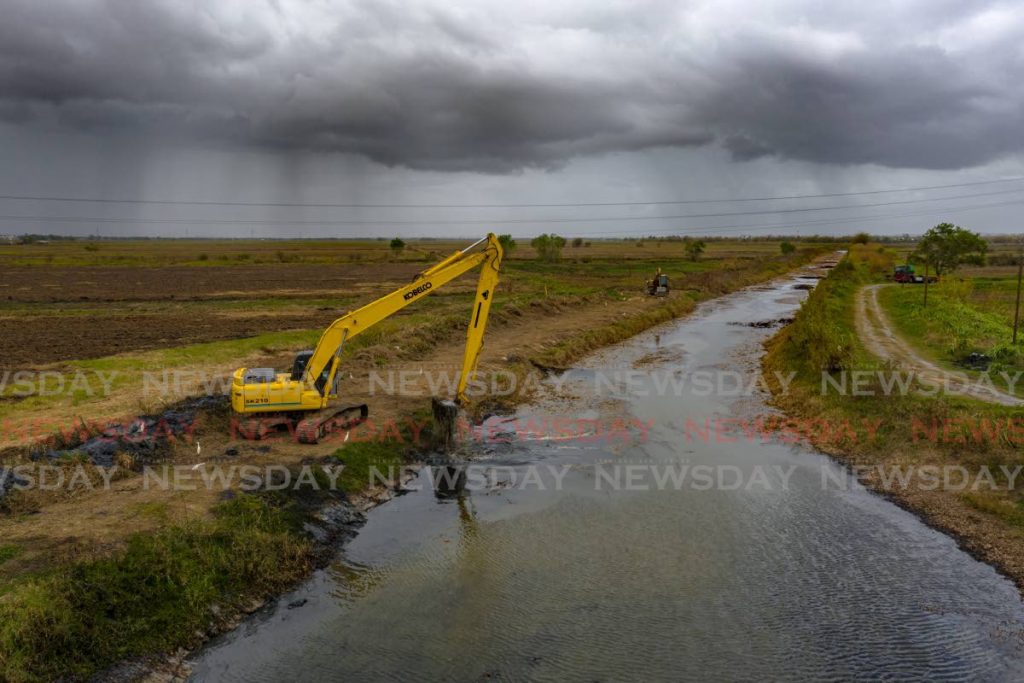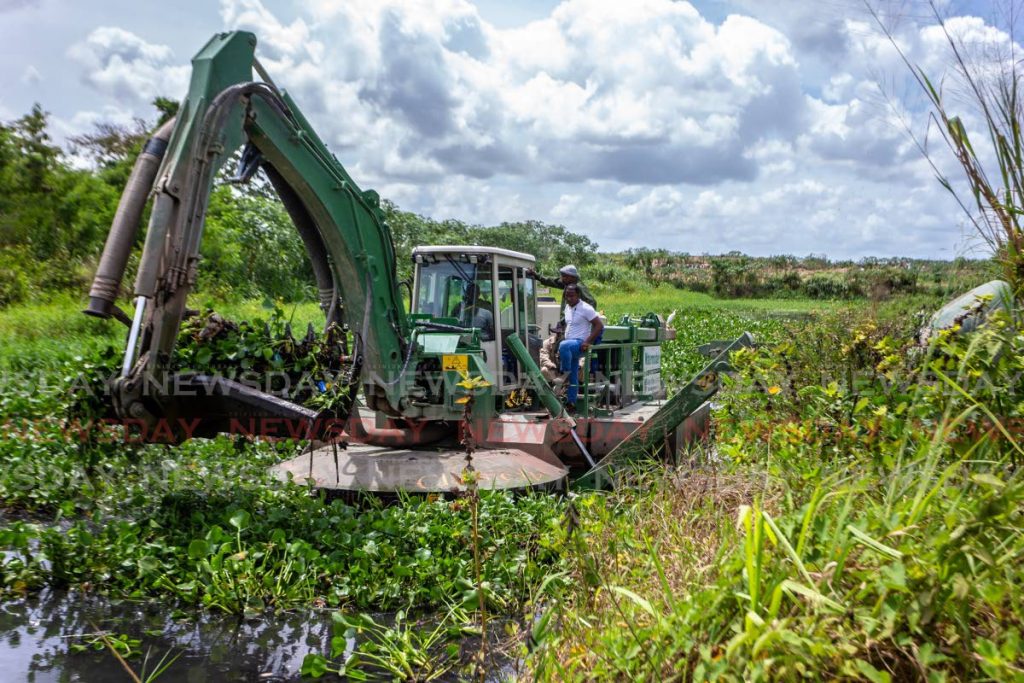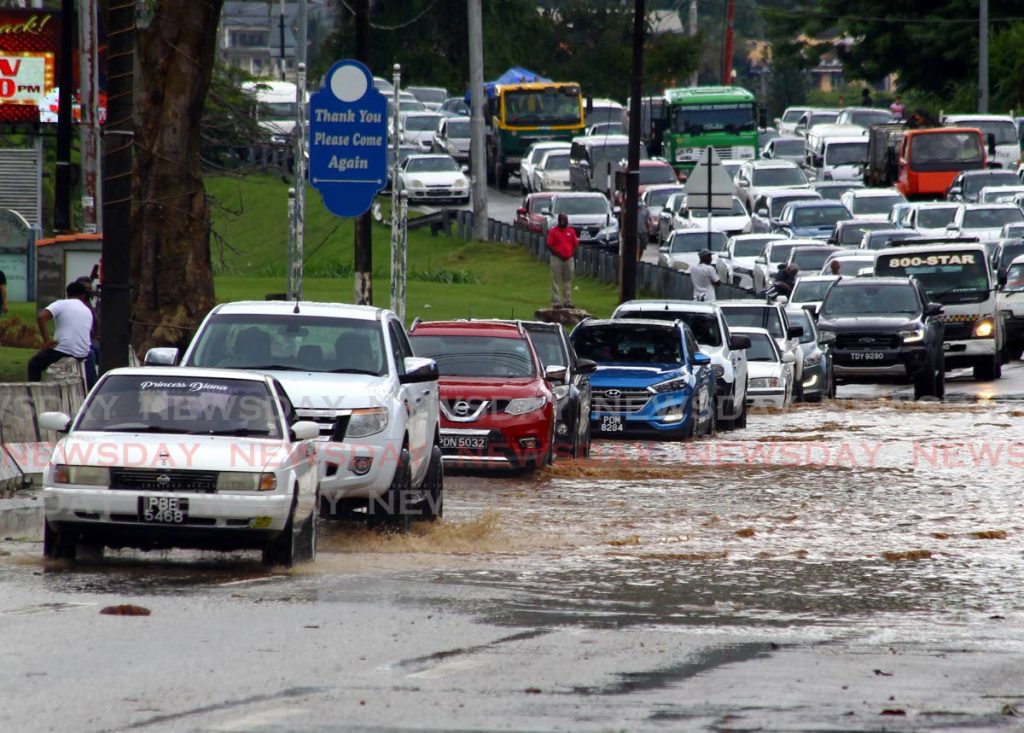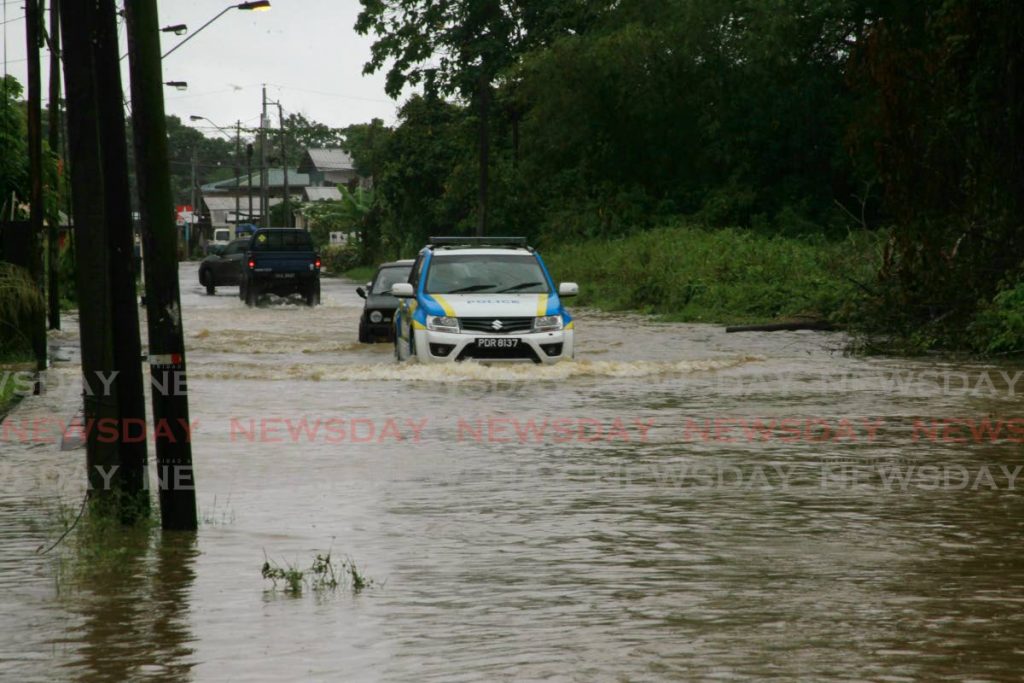Pandemic stalls rainy season preparations

The rainy season is upon us and as indicated by the Meteorological Office, this year’s forecast for the months of September to November is that TT is likely to experience above-normal rainfall.
This should come as no surprise this year,as during the rainy season, which is also hurricane season – June 1 to November 30 – five named storms have been predicted.
Various bodies such as the Ministry of Rural Development and Local Government, the Ministry of Works and Transport, the regional corporations and the Office of Disaster Preparedness and Management (ODPM) are doing mitigation and preparation works for the anticipated rains. But covid19 hampers the process.
The restrictions have prevented groups within each body from carrying out the work necessary for flood mitigation, since people have been asked to stay away from the workplace or minimise their contact with others.
Senior disaster management co-ordinator at the Ministry of Rural Development and Local Government Jerry David told Sunday Newsday that regional corporations have not been able to complete tasks within the designated periods.
“Covid19 has slowed down the requisite work to be completed, because people usually would have to be in close proximity to each other. The added restrictions have also made Community Emergency Response Team (CERT) training difficult in communities, but we are trying to do it virtually."
David said while corporations have raised the issue of lack of funds, they have been trying to make do with what was available to them.
“Every corporation has experienced a reduction in their allocations because of the current economic climate that we face. Whatever resources we have, the 14 municipal corporations have been working with what they have to do as much as possible.”
He also added that in any case, “We will never be able to totally eliminate flooding in some communities because many communities were developed in areas that are flood plains.”

David said if people continued to get approval to build homes and businesses in areas that are susceptible to flooding, advances in sustainable development would be defeated, as there would be a never-ending cycle of people in distress.
“People have backfilled these areas to make it into housing areas, which has disturbed the natural watercourses, and these areas will remain vulnerable to flooding,” he said.
David noted, however, that there were some engineering solutions to flooding, but the relevant ministries needed to take more seriously a nationwide drainage and structural plan.
According to the Met Office there is potential for increased flooding, as experienced last weekend with the passage of a tropical wave.
Areas such as Guapo, Palo Seco, Penal Rock Road, San Juan, the Lady Young Road, Caura, Arima, Sangre Grande, McBean, Bamboo experienced flooding which damaged property, triggered landslips, and led the Met Office to issue an alert that several main rivers might potentially overflow.
The MOWT’s drainage division is responsibile for maintaining the major watercourses across the country, while the Ministry of Rural Development and Local Government oversees the maintenance of secondary watercourses.
According to the MOWT, there are 84 desilting projects under the national desilting programme, of which 14 are ongoing. The included the Mandillon River along the northbound lane of the Uriah Butler Highway in Claxton Bay, Caparo River and rehabilitating existing embankments from St Helena to El Socorro South near the Caroni River.
Works completed, it said, were desilting, clearing, cleaning and embankment of the San Juan River, the St Helena River and the Balata River and tributaries.
David urged individuals to exercise their shared responsibility to prepare for natural disasters, because when disaster strikes, the time for preparedness would have passed.
“Because of a multiplicity of things that people do – block watercourses which are significant contributors to flooding in communities. Imagine we still seeing fridges, mattresses in watercourses. People can help by doing the correct thing and disposing of their refuse properly.”
Last weekend the heavy rain due to the tropical wave left several areas inundated. People were left with damage to their houses, appliances, clothes, furniture and vehicles.

Residents of Palo Seco were marooned for hours after a nearby river burst its banks. In Point Fortin areas such as Egypt, Guapo and Cap-de-Ville experienced unusual flooding which also left families frustrated and upset at the loss and damage to their homes and belongings.
Point Fortin mayor Saleema McCree Thomas told Sunday Newsday that covid19 restrictions had halted rainy-season preparation work in the borough and was hoping that it could be restarted soon.
“We don’t want to put people at risk of contracting the virus. We did cut down the size of the number of people in the gangs coming out, and also placed them on rotation. This has slowed down our preparation efforts.
“Due to covid19 we do not have the human resources to get the job done as we would like to and it held us back a bit.”
McCree Thomas said flooding occurs primarily in squatter areas because of poor infrastructure to deal with mass volumes of water at a time.
She said her office has been trying to work with the relevant authorities to find solutions, but funding remained a challenge.
“We have squatting communities which are underdeveloped. As a corporation we have to be very careful in how we spend government’s money in developing a particular area.
“We have identified areas that need infrastructure, but due to a lack of funds, we have not been able to intervene yet. For the time, we have resorted to dig earthen drains to help curb and ease the flooding issue.”

Sangre Grande Regional Corporation chairman Anil Juteram has called on the government to allow work in several areas to resume in an effort to mitigate against flooding. Work stopped in accordance with the covid19 public health regulations.
This was not the first time that people experienced such a disaster. In 2018, a massive flood at Greenvale Housing Development in La Horquetta and surrounding areas left scores of people counting their losses.
Almost 500 houses were partially under water and various first-responder units such as the Coast Guard and Defence Force had to help with full evacuations.
Heavy rain also affected areas in South Trinidad such as Debe, Barrackpore, Namdevco market in Debe and Woodland, and the Defence Force was also called out to evacuate marooned residents.
Flood preparation and precaution tips
The ODPM has updated its preparedness plan to include the threat of the covid19 virus.
It said in preparing emergency household plans, individuals should ensure that the covid19 health guidelines are followed and maintained.
They include physical distancing at groceries and hardware stores and ensuring there are face masks, additional hand sanitisers and soap in emergency kits, as well as emergency contacts such as health care services such as the Ministry of Health’s covid19 hotline (800/877-9355).
Other precautions include:
— monitoring weather conditions.
— use sandbags to prevent water from entering premises.
— identify emergency shelters and the easiest and safest route to get there.
— unplug electrical appliances and turn off main electrical switch.
— do not walk or drive through flood waters.
— do not cross bridges or drains.
— gather emergency supplies, including a household flood plan.
— secure hazardous items.
— roll up rugs, move furniture, electrical items and valuables to a higher level.
— place important personal documents, valuables and vital medical supplies in a waterproof casing.
— secure animals and pets in safe zone with food and water supply.


Comments
"Pandemic stalls rainy season preparations"